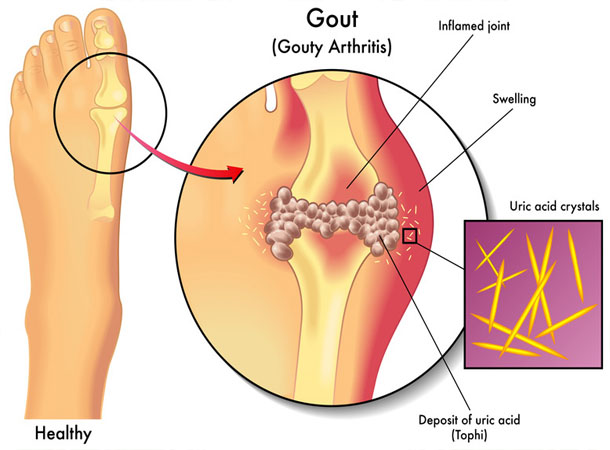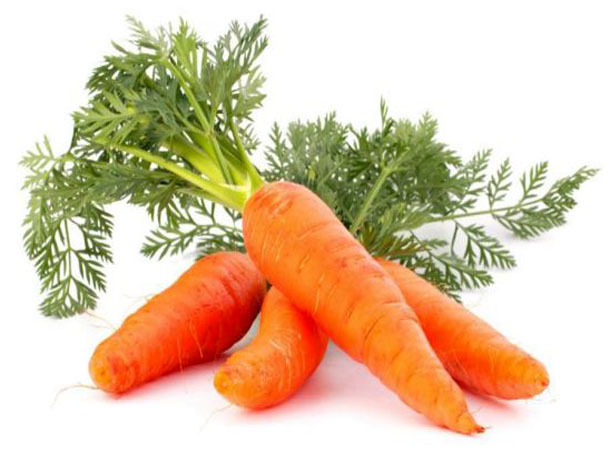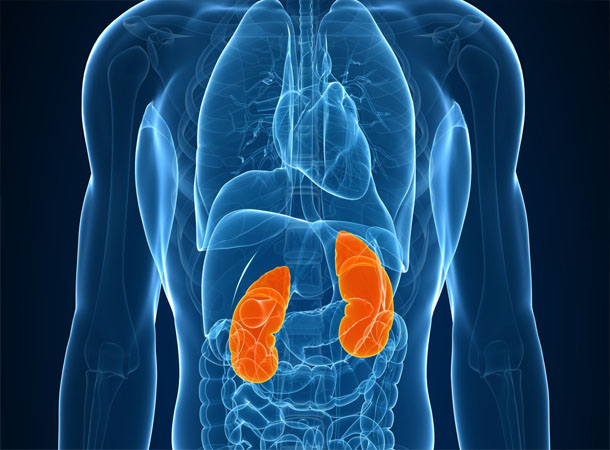1. Reduce the intake of purine-rich foods
Uric acid is formed by breakdown of chemicals called purines. Although they are naturally produced by the body, purines are also obtained from certain foods you eat. These are protein-rich foods like chicken, fatty fish and mushrooms. To regulate uric acid in the body, you need to limit the consumption of protein rich foods.
2. Drink water
Keep yourself hydrated by drinking water. An increase in water consumption has been linked to fewer gout attacks. Aim for eight to 16 glasses of fluids a day with at least half of that as water. A glass is 8 ounces (237 milliliters). Talk to your doctor about appropriate fluid intake goals for you.
3. Eat fibre-rich foods
Fibrous foods like green leafy vegetables, broccoli, cabbage and whole grains are shown to effectively absorb uric acid in the bloodstream. By absorbing uric acid, fibre allows its easy elimination through the kidneys.
4. Coffee
Some research suggests that moderate coffee consumption may be associated with a reduced risk of gout, particularly with regular caffeinated coffee. Drinking coffee may not be appropriate for other medical conditions. Talk to your doctor about how much coffee is right for you.
5. Eat complex carbohydrates
Complex carbs (cereals, pasta, whole grains) are good for people with gout because they take more time to get digested. They promote feeling of fullness and prevent weight gain, a major risk factor for developing gout.
6. Eat fruits
Eating fruits rich in vitamin C is one of the easiest ways to prevent gout attack and control uric acid level. Cherries, blueberries, blackberries, grapes and pineapples are some fruits you should have regularly. They are full of flavonoids that increase the excretion of uric acid from the body.
7. Avoid sugary drinks
Sugary drinks are the main culprit for increased uric acid levels. They not only raise uric acid in the blood due to processing in the liver but also directly interfere with its excretion. A study mentioned that daily intake of 300-millilitre serving of sugar-sweetened drink increased the chance of gout by 13 percent.
8. Alcohol
The metabolism of alcohol in your body is thought to increase uric acid production, and alcohol contributes to dehydration. Beer is associated with an increased risk of gout and recurring attacks, as are distilled liquors to some extent. The effect of wine is not as well-understood. If you drink alcohol, talk to your doctor about what is appropriate for you.
9. Vitamin C
Vitamin C may help lower uric acid levels. Talk to your doctor about whether a 500-milligram vitamin C supplement fits into your diet and medication plan.
Sources:
http://www.thehealthsite.com/diseases-conditions/7-tips-to-reduce-uric-acid-levels-and-prevent-gout/
http://www.mayoclinic.org/healthy-lifestyle/nutrition-and-healthy-eating/in-depth/gout-diet/art-20048524
http://www.herbs-info.com








